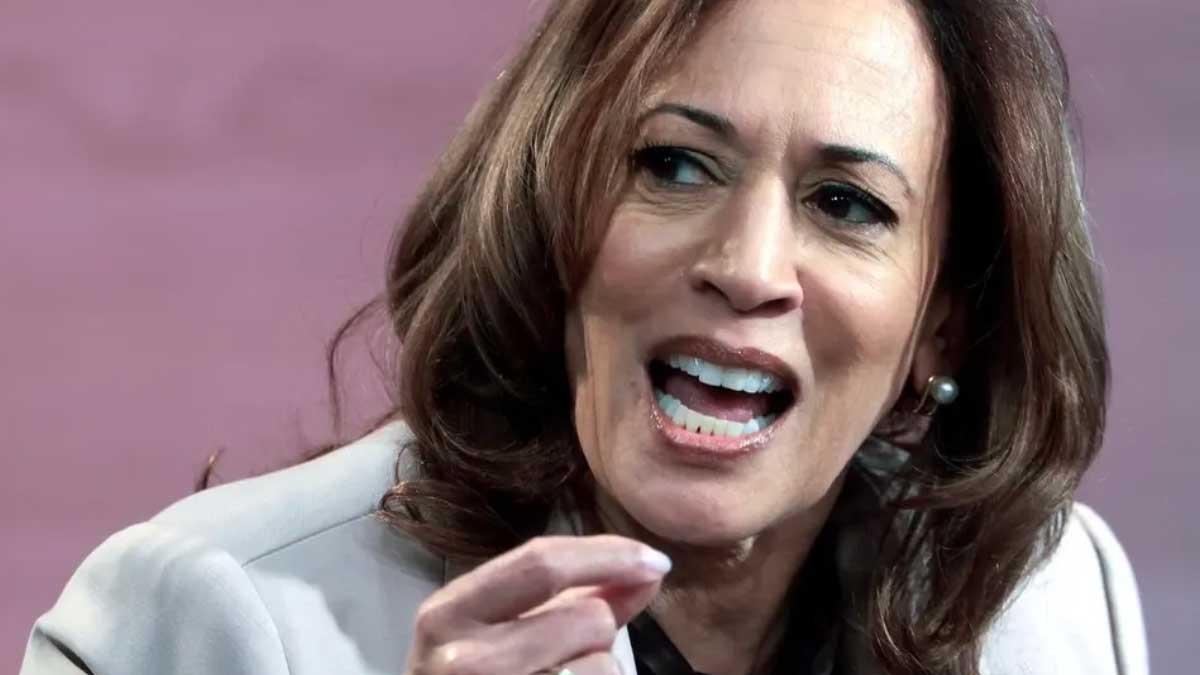- Home
- Billionaires
- Investing Newsletters
- 193CC 1000
- Article Layout 2
- Article Layout 3
- Article Layout 4
- Article Layout 5
- Article Layout 6
- Article Layout 7
- Article Layout 8
- Article Layout 9
- Article Layout 10
- Article Layout 11
- Article Layout 12
- Article Layout 13
- Article Layout 14
- Article Sidebar
- Post Format
- pages
- Archive Layouts
- Post Gallery
- Post Video Background
- Post Review
- Sponsored Post
- Leadership
- Business
- Money
- Small Business
- Innovation
- Shop
Recent Posts
X User Sues Over California’s Anti-Deepfake Law

An X user who generated a provocative AI-altered campaign video mocking Kamala Harris in July—an incident that gained significant traction after Elon Musk shared it—has initiated legal action to challenge California’s newly enacted laws aimed at combating political deepfakes. This legal move comes just one day after Governor Gavin Newsom signed the legislation into effect.
Christopher Kohls, the individual behind the X handle @MrReaganUSA, is the plaintiff in the case filed in the Eastern District of California federal court. Kohls contends that the new laws represent an overreach of “state power to compel private social media companies to censor private citizens’ speech by purging election-related AI-generated content.” The controversy surrounding Kohls began when he posted a campaign video in July, which utilized AI-generated audio to create a parody of Kamala Harris. In the video, Harris is depicted using phrases such as “ultimate diversity hire” and “deep state puppet.” The video gained widespread attention after being shared by Elon Musk on X, where it accumulated over 135 million views.
In the lawsuit, Kohls argues that the video’s voiceover, while designed to be a satirical portrayal, closely mimics Harris’ actual voice and exaggerates political rhetoric to influence public perception. Kohls asserts that this parody is protected under the First Amendment, as it is his constitutional right to satirize politicians he believes are unfit for office. Kohls’ original post labeled the video as a “Campaign Ad PARODY,” which, according to the California political deepfakes ban, should be exempt from the new regulations provided it includes proper disclosure. However, Kohls’ legal team argues that the law’s requirement for parody labeling to be displayed in font size comparable to other text in the video presents a challenge. They claim this requirement could lead to the parody label occupying nearly the entire screen, potentially undermining the video’s intended impact and protection under the law.
Governor Gavin Newsom’s decision to sign the legislation came in the wake of Musk’s promotion of Kohls’ video. Musk had previously ridiculed Newsom’s stance on the issue, insisting that “parody is legal in America.” On Tuesday, Newsom signed Assembly Bill 2839, Assembly Bill 2655, and Assembly Bill 2355 at Salesforce’s AI convention “Dreamforce.” AB 2839, which took effect immediately, criminalizes the distribution of “materially deceptive audio or visual media of a candidate” within 120 days before an election and, in some cases, up to 60 days after. This bill empowers candidates to seek court orders to remove such deepfake ads and pursue legal action against those who disseminate them. Nonetheless, the law permits exceptions for parody and satire, provided there is a clear disclosure. The two additional bills, which will become effective next year, mandate that platforms like X and Facebook remove political deepfakes and require campaigns to disclose any ads containing AI-generated or altered content.
Following the enactment of the new laws, Elon Musk has continued to criticize Governor Newsom and the legislation. Musk reposted the video on X and commented, “You’re not gonna believe this, but Gavin Newsom just announced that he signed a LAW to make parody illegal, based on this video.” The billionaire, who has endorsed Donald Trump, urged his followers to make the Harris deepfake video “viral” and called for a change in California’s leadership. Musk further warned that a Harris victory in November could lead to nationwide restrictions on free speech. Additionally, Musk promoted a Babylon Bee deepfake ad targeting Newsom. The legal battle over California’s anti-deepfake laws highlights a significant clash between political satire and new regulatory measures aimed at curbing misinformation. As the case unfolds, it will likely set important precedents for the intersection of technology, free speech, and election integrity.
Recent Posts
Categories
- 193cc Digital Assets2
- 5G1
- Aerospace & Defense46
- AI37
- Arts3
- Banking & Insurance11
- Big Data3
- Billionaires449
- Boats & Planes1
- Business328
- Careers13
- Cars & Bikes76
- CEO Network1
- CFO Network17
- CHRO Network1
- CIO Network1
- Cloud10
- CMO Network18
- Commercial Real Estate7
- Consultant1
- Consumer Tech180
- CxO1
- Cybersecurity68
- Dining1
- Diversity, Equity & Inclusion4
- Education7
- Energy8
- Enterprise Tech29
- Events11
- Fintech1
- Food & Drink2
- Franchises1
- Freelance1
- Future Of Work2
- Games141
- GIG1
- Healthcare78
- Hollywood & Entertainment186
- Houses1
- Innovation42
- Investing2
- Investing Newsletters4
- Leadership65
- Lifestyle11
- Manufacturing1
- Markets20
- Media193
- Mobile phone1
- Money13
- Personal Finance2
- Policy567
- Real Estate1
- Research6
- Retail1
- Retirement1
- Small Business1
- SportsMoney33
- Style & Beauty1
- Success Income1
- Taxes2
- Travel10
- Uncategorized8
- Vices1
- Watches & Jewelry2
- world's billionaires418
Related Articles
Trump Moves $4B Stake in Truth Social Parent, Stock Drops 6%
Donald Trump recently transferred his 57% stake in Trump Media & Technology...
By 193cc Agency CouncilDecember 20, 2024House Rejects Trump-Backed Funding Bill, Shutdown Looms
The U.S. House of Representatives rejected a new government funding bill on...
By 193cc Agency CouncilDecember 20, 2024Trump Named Time’s Person of the Year for Second Time
On Thursday, Time magazine honored Donald Trump as its “Person of the...
By 193cc Agency CouncilDecember 12, 2024Meta Donates $1 Million to Trump’s Inaugural Fund
Meta, the parent company of Facebook and Instagram, has confirmed a $1...
By 193cc Agency CouncilDecember 12, 2024















Leave a comment